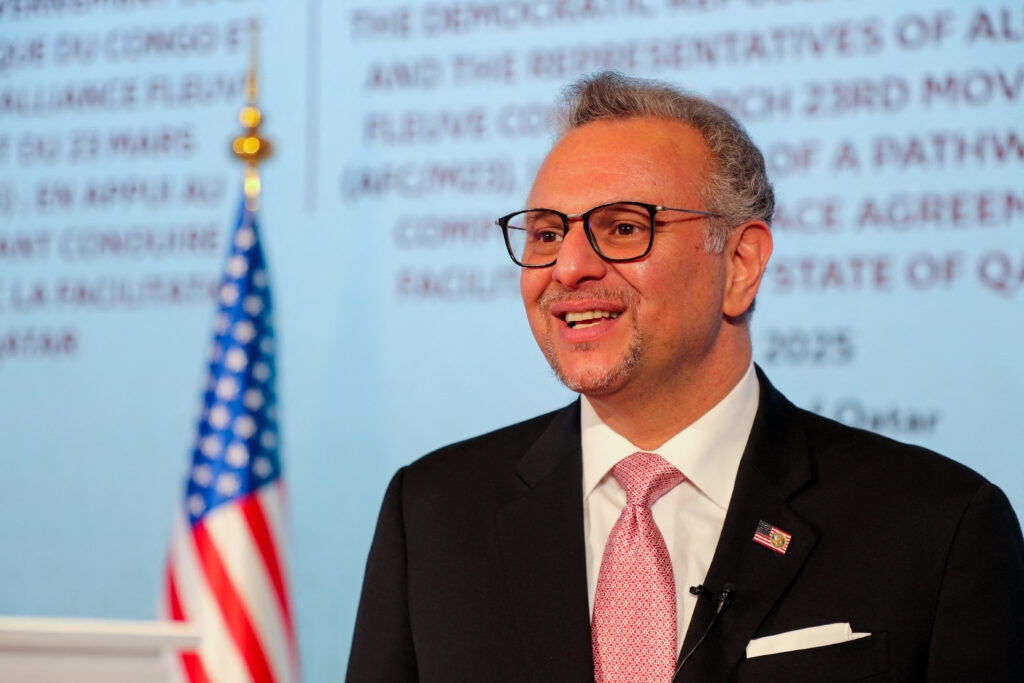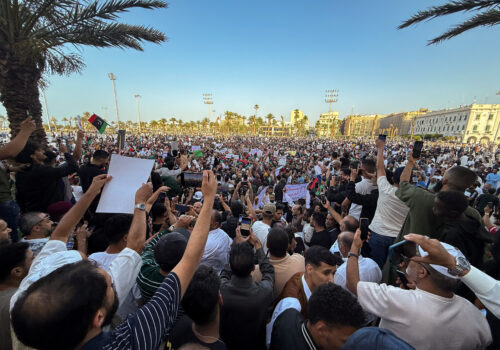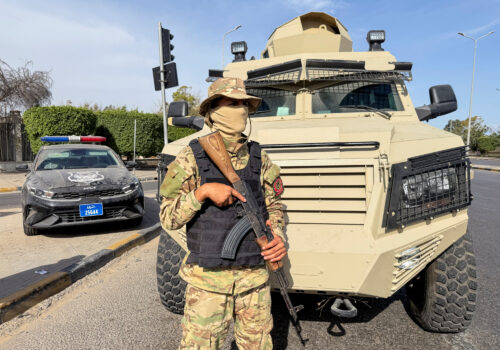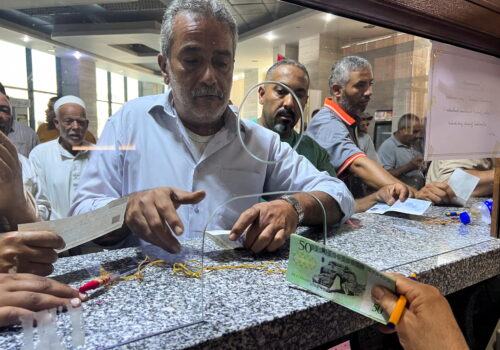The Trump administration’s appointment in April of Massad Boulos as its senior advisor for Africa was initially met with some skepticism in Washington. Boulos had little previous diplomatic experience, his role seemed ill-defined, and a driving factor in his appointment appeared to be that he is Tiffany Trump’s father-in-law. Since then, however, Boulos has successfully leveraged his family ties to US President Donald Trump and his previous experience navigating African politics to spearhead negotiations for the “Washington Agreement” between Rwanda and the Democratic Republic of the Congo (DRC) on June 27.
Then in July, Boulos concluded a series of meetings in North Africa, which could open the door to another diplomatic breakthrough, this time in Libya, if the administration follows through.
Libya today
Libya has entered a period of fragile calm. The Government of National Unity (GNU), based in Tripoli, and the Libyan National Army (LNA), which controls the east of the country, have stabilized their respective territories, even as the two rival power centers vie for authority.
Deep problems persist. Political fragmentation and weak or absent state structures are creating the conditions for institutional paralysis. Russia and other countries continue to exercise dangerous influence. Desperation continues to send would-be refugees on the perilous trek north across the Mediterranean. But as the cease-fire brokered in 2020 between the GNU and LNA is continuing to hold, now is the moment for the United States to put diplomacy to work.
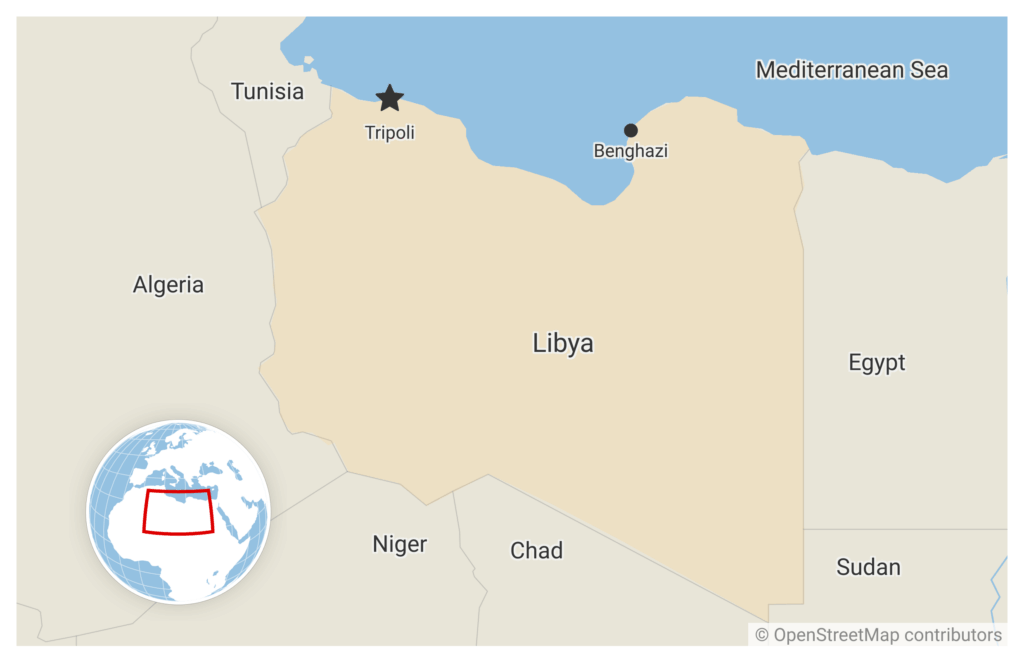
Recent US efforts
US policy in Libya has evolved significantly from the shocking death of US Ambassador Chris Stevens in Benghazi in 2012. The Biden administration, for example, made a concerted effort to engage more with Libya. In March 2023, it released a ten-year plan for preventing conflict and promoting stability in Libya under the Global Fragility Act. Then in March 2024, it notified Congress of a plan to reopen the US embassy in Tripoli.
In its first seven months in office, Trump administration has built on this earlier work. In April, it conducted a ship visit to Libya with the USS Mount Whitney, the first by a US Navy vessel in more than fifty years. In July, it dispatched Boulos to both Tripoli and Benghazi, as well as to neighboring countries Tunisia, Algeria, and Egypt—presumably to look for avenues to advance peace and stability, which would pave the way for Libya’s energy resources to reach global markets.
All in the family
While skeptics criticized Boulos’s family connections or business background, he has used both to deliver a decisive advantage in diplomatic negotiations. Counterparts in the region—many of whom are not new to the influence of familial envoys—know that trusted ties mean access, and access means authority. Boulos has the latitude to promise and deliver creative solutions.
More than ever, Libya needs that authority and creativity. Boulos is well positioned to advance regional and global objectives regarding stability for Libya’s oil exports and broader economic development, countering global terrorist networks, and managing strategic competition with Russia.
Boulos has proven through his work with the DRC and Rwanda that he can leverage White House access to bring US national and global attention to complex problems. The sustainment of that effort and future progress for Libya hinges on the work of the career bureaucracy and uniformed military services to engage diplomatically and message consistently and cohesively. It also depends on their ability to build and maintain reliable security partnerships and deliver on economic promises for US private-sector investments. Such officials maintain long-standing relationships, regional knowledge, and functional expertise that the administration can use to its advantage, and they deserve the administration’s trust to carry forth such an agenda.
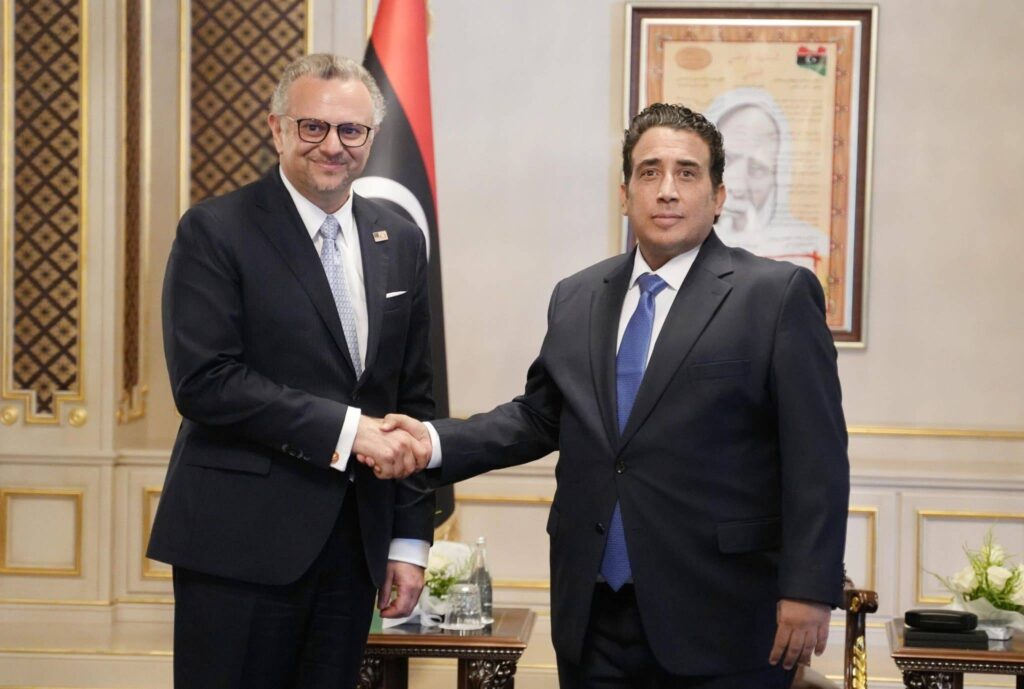
Four steps forward
Combining the advantages of Boulos and career US diplomats and military officers, there are four near-term actions the Trump administration can take to bolster its ties to Libya.
First, the administration should nominate an ambassador to Libya, and the Senate should swiftly confirm this selection to replace Richard Norland, who departed the post in 2022. Chargés d’affaires perform an incredible service and achieve remarkable things for US interests, but they cannot possibly achieve the same results or gain the same access as a Senate-confirmed personal representative of the US president.
Rather than continuing operations from Tunis, the next US ambassador to Libya should reopen the US embassy in Tripoli and maintain full-time operations in-country. The future ambassador’s presence would demonstrate a commitment to maturing the US-Libya bilateral relationship. Until then, the US government should maintain or accelerate the pace of in-country engagements, extending each of these in duration until the US official diplomatic presence is persistent, if not permanent.
Second, the administration should roll out a concerted public information campaign articulating its policy objectives for Libya. This information campaign should outline marching orders for US departments and agencies working on Libya. It should assure Libyan stakeholders of the US interest in improving US-Libya ties. And it should reinforce to global actors—both friend and foe—that the United States is invested in Libya’s stability and economic markets.
The Trump team has demonstrated finesse in managing information flows to the US and global media. For example, their information campaigns to US and global audiences on migration are nothing if not clear. A well-choreographed public affairs campaign articulating that the United States supports peace efforts in Libya and that the country is open for business will help reinforce other elements of US power operating in Libya in both the public and private sector. Such messages will also bolster confidence among Libyans that they can take steps toward the United States and policies that advantage the United States, while prompting allies and partners to consider aligning with US positions on Libya.
Third, the Department of Defense and Department of State should continue to incrementally increase US engagement and cooperation with defense forces and law enforcement in both GNU- and LNA-held territories. US forces have much to learn from engagements with their Libyan counterparts. Libyan forces have, for instance, tracked and countered terrorists in austere environments for decades with no reliable resourcing, and they have balanced the interests of strategic competitors waging influence campaigns within their borders.
Several US defense, law enforcement, and intelligence arms have strategic, operational, and tactical interests in collaborating with their Libyan counterparts to disrupt global terrorist operations and impede Russia’s efforts to destabilize the Sahel and Central Africa. The administration should resource such security investments. This does mean spending US taxpayer dollars overseas. But providing security cooperation and assistance to Libyan forces can pay dividends in countering terrorism, thwarting Russia’s bids for influence on the continent, and advancing regional stability for economic markets.
Fourth, the Trump administration, with Boulos as its point person, should use its connections in the US private sector, particularly in the oil and gas industry, to broker relationships with Libya’s business community. Libya’s oil wealth is unparalleled on the African continent, but the country’s conflicts have shuttered production and export facilities. Historically, Libya has been a wealthy and influential country, boasting elite security forces and influence throughout Africa and the Mediterranean, and there is extraordinary economic potential in the country that can help return it to that role in the medium and long term.
Moreover, the White House could leverage the Voluntary Principles Initiative to usher in respect for human and labor rights in Libya, thereby mitigating risk, creating value for Libyans, and advantaging the approaches of US companies. The Trump administration speaks the language of the private sector and brings enormous influence in this space that can catalyze deals, creating new economic opportunities.
Trump and his team have admirably dedicated diplomatic weight to political and economic dealmaking in several global arenas. North Africa is hopefully its next target. Boulos’s family connection to Trump provides a tangible platform for brokering talks that can lead to greater stability and open economic pathways in Libya. The Trump administration should continue to support his personal engagement in Libya in pursuit of key US national interests in bolstering security and increasing economic prosperity.
At the same time, career diplomats and members of the US military, in support of the president’s policies, must be empowered and resourced to follow through with traditional tools of US national power to reinforce and execute prospective agreements. Absent such efforts to sustain diplomatic progress, the results of the administration’s peacemaking and dealmaking efforts will dissipate by the next news cycle.
Maureen Farrell is a nonresident senior fellow in the Atlantic Council’s Scowcroft Center for Strategy and Security and vice president for global partnerships at Valar, a Nairobi-based strategic advisory and risk firm. She previously served as the deputy assistant secretary of defense for African affairs and director for African affairs at the US National Security Council.
Further reading
Tue, May 27, 2025
Beyond ceasefires: Reimagining stability and engagement in Libya
MENASource By
With all major political institutions mired in crisis, a renewed approach to peace enforcement is pivotal to building stability.
Fri, May 16, 2025
The killing of Abdul Ghani al-Kikli may be a turning point for Libya
MENASource By
The killing is considered to be part of a push to eliminate influential militia leaders and consolidate GNU loyalist control over Tripoli.
Wed, Apr 16, 2025
Solving Libya’s economic collapse will require confrontation—not consensus
MENASource By Emadeddin Badi
If the status quo continues, the next phase of Libya’s crisis will not be quiet erosion. It will be public revolt.
Image: U.S President Donald Trump's senior adviser for Africa and the Middle East, Massad Boulos, speaks to Reuters after the signing ceremony of a declaration of principles to end fighting in eastern Congo between the Democratic Republic of Congo and the M23 rebel group, in Doha, Qatar, July 19, 2025. REUTERS/Imad Creidi
